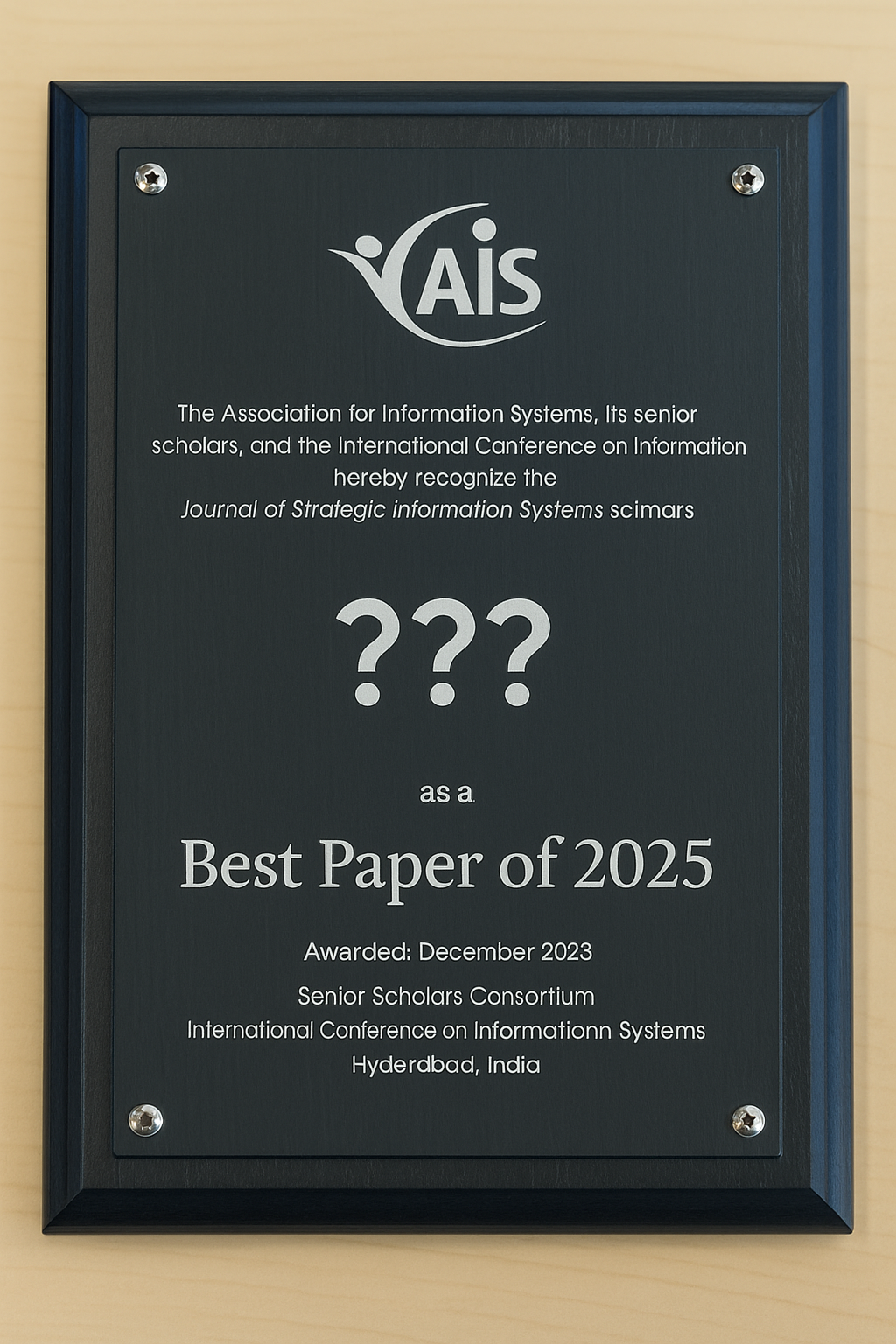
## Exercise: Best Paper Awards Form groups based on the **four genres of review papers**: **Describing**, **Understanding**, **Explaining**, and **Testing**. Each group will review exemplar papers—either those you identified or the ones suggested below: - **Describing**: [Chan & Reich](https://link.springer.com/article/10.1057/palgrave.jit.2000109) or [Aloini et al.](https://www.sciencedirect.com/science/article/pii/S0378720607000547) - **Understanding**: [Agarwal et al.](https://pubsonline.informs.org/doi/10.1287/isre.1100.0327) or [Avgerou](https://link.springer.com/article/10.1057/palgrave.jit.2000136) - **Explaining**: [Krogh et al.](https://www.jstor.org/stable/41703471) or [Leidner & Tona](https://aisel.aisnet.org/misq/vol45/iss1/13/) - **Testing**: [Sabherwal & Jeyaraj](https://www.jstor.org/stable/26628653) or [Lacity et al.](https://journals.sagepub.com/doi/10.1057/jit.2011.25) Criteria: 1. Your own assessment of the contribution 2. Elements covered in the course, such as the [storyline](../output/01-goals.html#review-protocols-structure-and-contents-i), [internal coherence](../output/01-goals.html#central-aspect-internal-coherence), or [methodological rigor](../output/02-steps.html)  --- ## Exercise: Best Paper Awards The [worksheet](../exercises/exemplars/exemplars.pdf) consists of two parts: 1. A summary sheet for the characteristics of exemplary reviews 2. A note sheet for your own literature review protocol or paper  **Question:** *What is the exemplar paper your group selected? Why do you consider it an outstanding contribution?*  **Task:** *Use the second part of the worksheet to take notes: How might you develop your own review protocol or paper based on what you've learned?* ⏱️ **Timing**: 30 minutes → Read, highlight, discuss, and take notes. 🗣️ Select one group member to summarize the key strengths of your chosen paper. 
## Warm-up exercise  **Task** (10 min): Record your topic, research question, and the type of review.  --- ## Warm-up exercise  **Question**: If aiming for a top-tier journal, what key aspects would you focus on to produce a high-quality review paper?  --- ## Studying the qualities of exemplars Studying exemplary literature reviews and analyzing the qualities that make them compelling provides valuable insights into what constitutes a high-quality review.  Form a review panel to evaluate the review papers. Provide recommendations on which papers to accept and which to reject, along with justifications for each decision.
Pare2016/Templier2018
TOOD: refer to two roles?